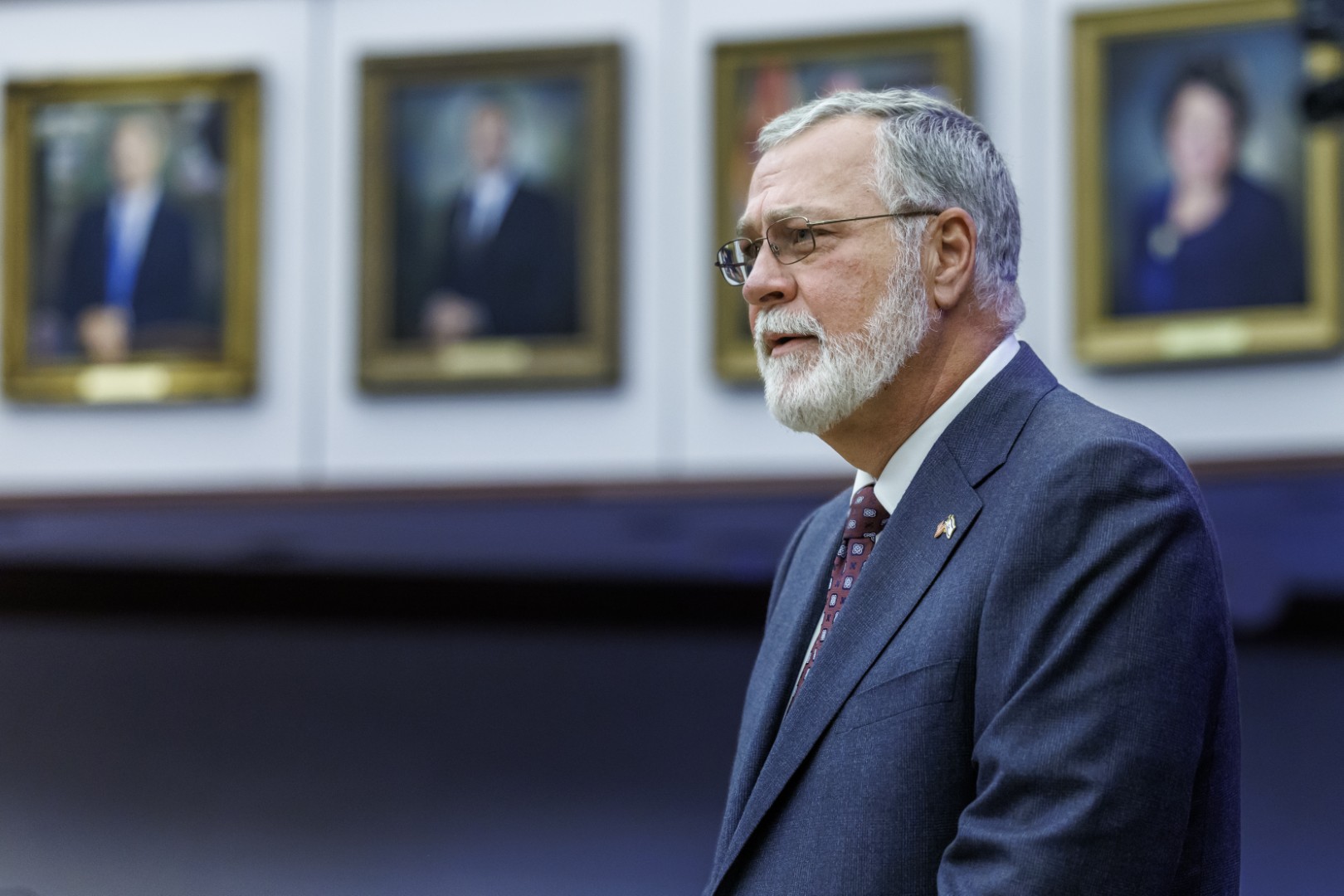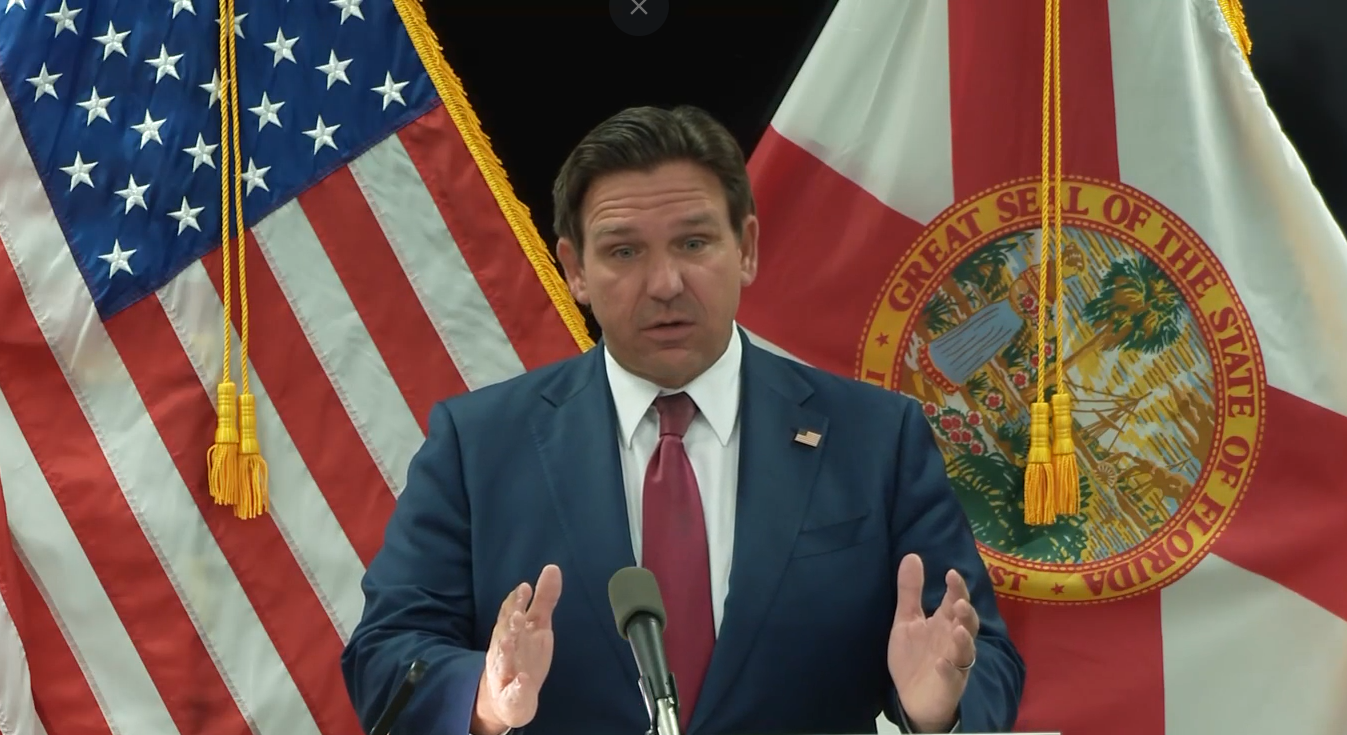The Florida Education Association (FEA) is calling on lawmakers to fully fund public education and prioritize students and communities in their proposed budgets, something the state’s main teachers union says is not happening under current proposals.
“Before the Legislative Session began, the Florida Education Association called on lawmakers to increase student funding by $1,000 per student, which would finally begin to move Florida up from the ranking of 43rd in the nation,” the group wrote in a statement after both the House and the Senate voted to pass their respective budget proposals.
The Senate budget calls for an increase in per pupil allocations of $135, while the House calls for $62. The group argues that the funding levels, pitched as increases, are actually a “cut by another name,” because they fail to even keep up with inflation.
“A child who was in kindergarten when Gov. (Ron) DeSantis signed his first budget in 2019 will be starting middle school when the 2025-26 budget is implemented. During that time, per-student funding for that child has decreased by $400 when adjusted for inflation based on the proposed Florida Education Finance Program (FEFP) calculations in the House and Senate,” the group continued.
The FEA mentioned the state’s ranking at No. 43 in the nation. The group didn’t offer a citation for that figure, but it likely references a 2024 ranking from the National Education Association putting Florida at No. 43 in the nation for per pupil spending. At the time of the ranking, the group found Florida based per pupil spending amounts at just under $9,000 for that school year, according to the Florida Policy Institute.
“The budget proposals shortchange students and educators alike. They keep Florida at the bottom of the nation in average teacher pay, slash funding for courses that prepare students for college and careers and continue the long practice of unfunded mandates,” the group wrote. “Once again, educators are being asked to do more and more with less and less resources.”
Last year, Florida ranked at No. 50 in the nation in average teacher salary, behind only West Virginia.
Two legislative proposals (SB 7030, SB 2510) cleared both chambers of the Legislature on Wednesday. The measures would cut in half the bonuses schools receive when students achieve certain passing scores on assessments for advanced curriculum such as Advanced Placement (AP), International Baccalaureate (IB), Advanced International Certificate of Education (AICE), dual enrollment and Career and Professional Education (CAPE).
Lawmakers who support the proposals, including Rep. Jenna Persons-Mulicka, a Naples Republican, argue it’s not a cut in half to the bonuses because schools would receive that funding through other sources. But critics and some school officials disagree, according to WUSF, which reported that the Duval County School Board in Jacksonville estimates the measures would cost its schools $8 million.
Persons-Mulicka said during House floor testimony on the bills Wednesday that funding instead would flow through the FEFP, in which funding follows the student.
Similar testimony in the Senate Wednesday yielded fierce debate, with Democrats peppering Republicans running the bill and education budget with questions about how to track the money. Republican Sen. Danny Burgess explained that the money is difficult to track because of funding programs that allow funding to follow each student, rather than line items to specific programs.
The FEA did not specifically mention the state’s universal school voucher program, passed in 2023. It provides funding for students to attend private school — or other school choice programs, including homeschooling — regardless of household income. Voucher programs had previously been set aside for low-earning households.
But during Senate debate Wednesday, Democrats also, in a roundabout way, highlighted what school choice critics see as a loss of public school funding to compensate for increased funding needs for vouchers.
Sen. Tracie Davis, describing her line of questioning as a quest for clarification rather than statements of opposition, specifically asked if public schools were losing out on funding as a result of students and families choosing public school alternatives. Republican supporters argued that was not the case, but it remains an ongoing debate between the sides.
Still, the FEA says “decades of bad policy,” a likely reference to the explosion of school choice over that time, have led to “teacher and staff shortages, declining SAT scores and failing NAEP scores.”
In January, the group conducted a “deep dive” into Florida’s teacher shortage, finding more than 3,000 teacher vacancies statewide, a number that was 64% of what it was last August, when the current school year started.
On SAT scores, WESH reported last year that average scores had dropped to 948 in 2024, 18 points lower than in 2023 and 70 points lower than in 2017.
And on NAEP, the National Assessment of Educational Progress, commonly referred to as the Nation’s Report Card, the difference in Florida’s 2024 score of 243 in mathematics was statistically insignificant from 2022, when it was 241. It was higher than the average national score, at 237. But reading scores suffered, averaging 267 in 2024, a 4-point drop from 2022 and 5 points lower than the national average.
“Lawmakers say they support educators, communities and students. We are again calling on lawmakers to show that support for our public schools by reworking the budget to ensure districts can meet the needs of every student who walks into our public schools,” the group wrote. “Let’s not make students and educators talking points to be used to gain support — we need to fully fund public education in Florida.”
Post Views: 0

 Entertainment8 years ago
Entertainment8 years ago
 Politics8 years ago
Politics8 years ago
 Entertainment8 years ago
Entertainment8 years ago
 Entertainment8 years ago
Entertainment8 years ago
 Tech8 years ago
Tech8 years ago
 Tech8 years ago
Tech8 years ago
 Tech8 years ago
Tech8 years ago
 Politics8 years ago
Politics8 years ago










